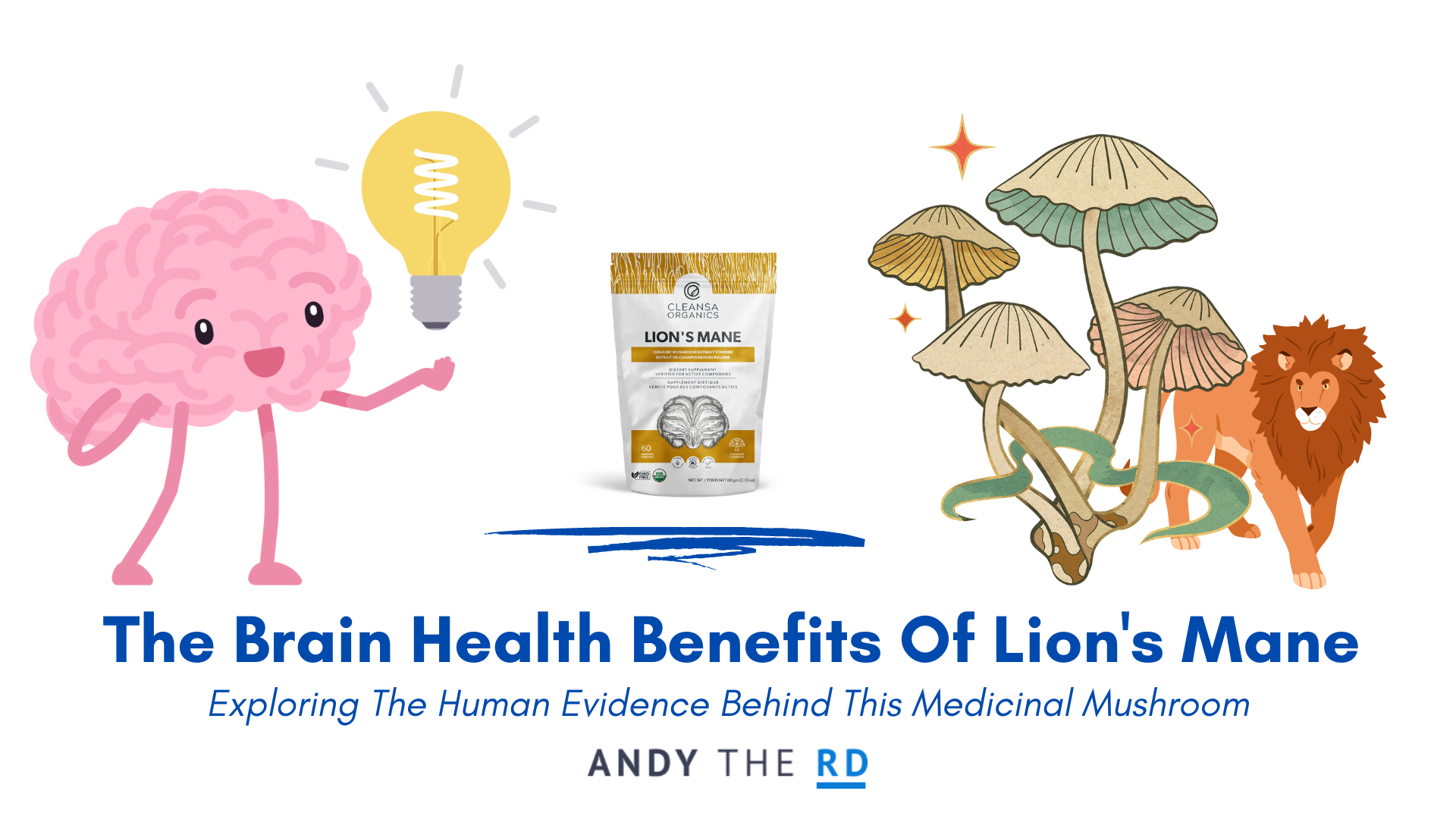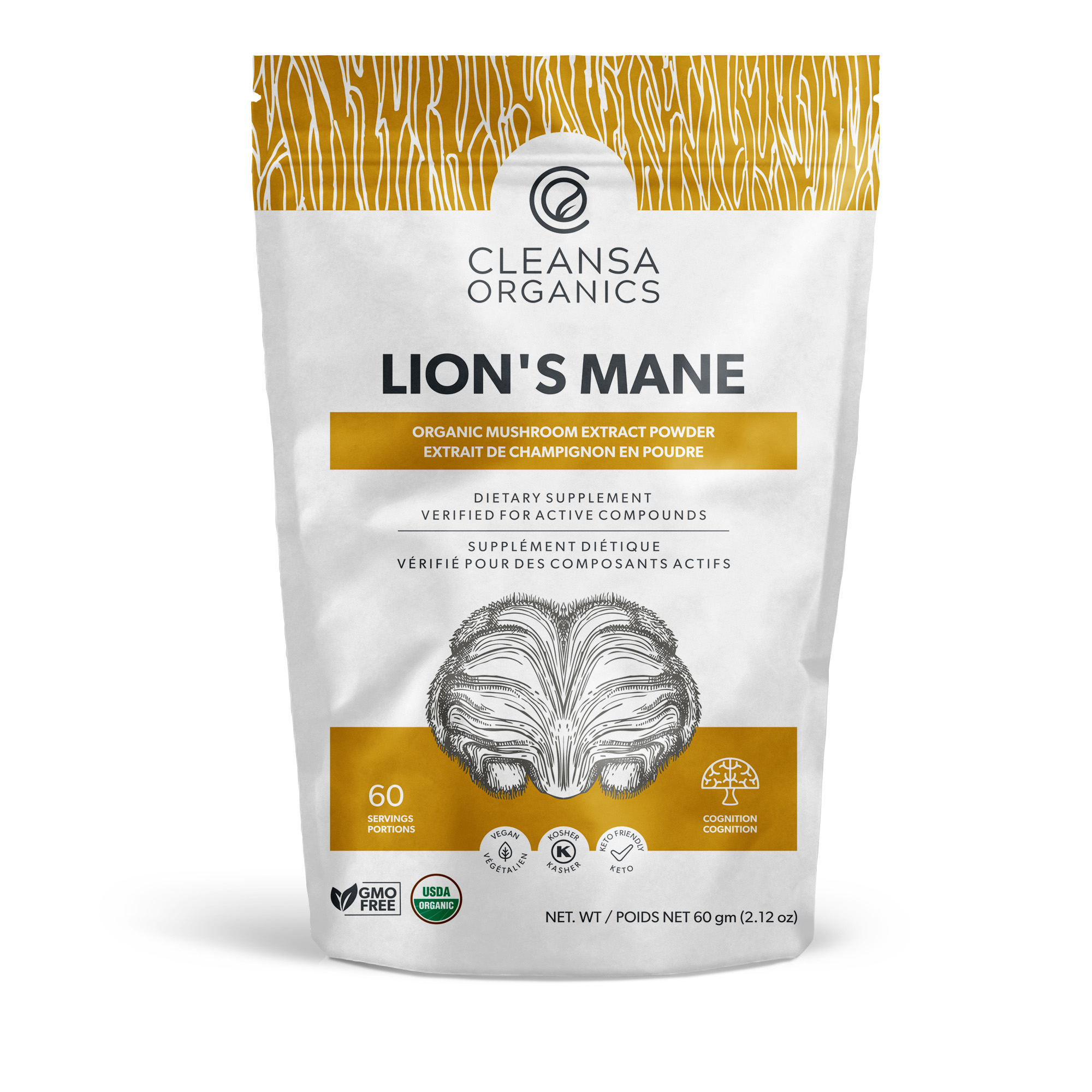Lion’s Mane, scientifically referred to as Hericium erinaceus, is a species of edible medicinal mushroom and one of the most popular herbal supplements currently on the market.
I’ve always taken a great interest in the complimentary role of supplementation in enhancing human health, which is why I’m very excited to be here today in collaboration with Toronto-based Cleansa Organics to explore the unique benefits of this fascinating product.
Associated primarily with benefits to cognitive health, Lion’s Mane may also confer additional boosts to other aspects of the human body including the gut microbiome.
Gut-brain connection anyone?
In today’s post I’ll formally introduce you to Lion’s Mane with a special emphasis on the limited number of human studies that it has been assessed in.
Let’s get to the good stuff!
An Intro To Lion’s Mane Mushroom
Lion’s Mane has historically been used as a medicinal mushroom throughout Asia.
Known as Yamabushitake in Japan, Lion’s Mane contains a wide array of unique compounds which contribute to its reported health properties.
These include:
- Polysaccharides
- Hericenones
- Terpenoids
- Sterols
- Myconutrients
- Isoindolinones
Quite a mouthful right?
Whether synergistically or in isolation, it is these compounds that scientists believe are most likely confer the various benefits associated with Lion’s Mane use.
The Science At The Cellular Level
There has been a good amount of work done exploring the role that the various compounds found within Lion’s Mane play at the cellular level in order to better understand how it might influence human health.
It is thought to contribute to our health in at least three ways:
Acting As An Antioxidant – In experiments at the cellular level, Lion’s Mane has demonstrated exceptional antioxidant potential.
Enhancing The Microbiome – Early evidence suggests that Lion’s Mane may contribute to gut microbiome diversity and overall gut health via a prebiotic effect on gut bacteria while studies at the cellular level demonstrate they have the ability to suppress unhealthy bacteria.
Nourishing Brain Cells – Compounds isolated from Lions’ Mane have been demonstrated at a cellular level to stimulate the production of NGF (nerve growth factor), a compound important for healthy neurons, while also potentially reducing overall brain cell inflammation.
While these are fascinating and promising findings, my primary interest always lies in whether or not they have yet translated into human studies – so let’s explore that next.
Lion’s Mane – The Human Evidence
Studies conducted at the cellular level and in animals are important parts of the scientific process, but real tangible human evidence is irreplaceable when it comes to making meaningful claims about the potential role of any supplement.
The real fun comes in the form of randomized human trials, and there have been several done using Lion’s Mane over the last decade.
These Include:
A 2009 randomized controlled trial out of Phyotherapy Research which looked at Lion’s Mane supplementation in adults aged 50-80 with mild cognitive impairment and demonstrated that it improved their scores in a cognitive testing tool known as the Hasegawa Dementia Scale (HDS-R).
The observed improvements faded a month after supplementation was stopped, perhaps indicating that the benefits of this medicinal mushroom are best observed via ongoing use.
Another 2019 randomized controlled trial out of Biomedical Research noted that 12-weeks of Lion’s Mane supplementation improved participants test scores in something known as the MMSE test, which is used to measure cognitive impairment.
In 2020, the Frontiers In Aging Neuroscience journal looked at the effects of a years worth of Lion’s Mane supplementation in people living with mild early Alzheimer’s Disease and noted that scores in various relevant cognitive tests including the MMSE noted above, as well as other tests such as the CASI and IADL test also improved.
Finally, a 2021 pilot study out of the Nutrients journal demonstrated that 7-day supplementation with Lion’s Mane improved microbiome diversity and the abundance of SCFA producing bacteria in a very small sample size of adults with an average age of 30.
My Thoughts
Given the increasing interest around the role that diet, lifestyle and supplementation plays in maintaining brain health was we age, I’m not surprised by Lion’s Mane’s popularity.
While research in this area is still in early stages, initial human evidence points to a potentially promising cognitive health contribution particularly in older adults.
More research will be required to make stronger claims, and I certainly look forward to exploring it as it becomes available.
A special thank you and note of appreciation to Cleansa Organics for supporting my exploration of the science in this area.
Their versatile Lion’s Mane product, manufactured right here in my hometown of Toronto, is linked and pictured below.




